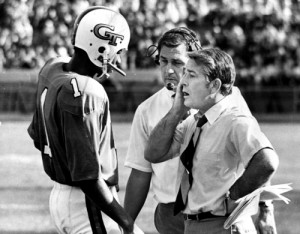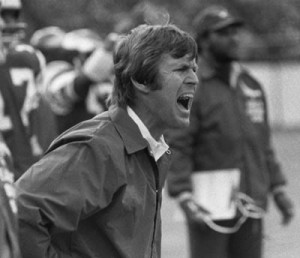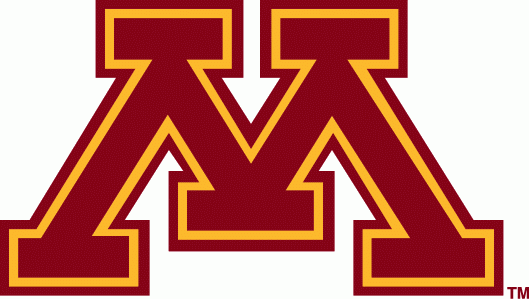On Sunday the New England Patriots will play in the Super Bowl, giving head coach Bill Belichick a chance to win a fourth championship as head coach. Already considered among the greatest coaches in NFL history with three Super Bowl rings, Belichick can cement his place among the top of the coaching profession in the sport with a fourth. As the Patriots prepare to take on the Seattle Seahawks in this weekend’s Super Bowl, I often find myself asking what would have happened if former Penn State head coach Joe Paterno accepted a job offer from the Boston Patriots.
To many Penn State fans this story is fairly common knowledge at this point. The NFL a couple of times, by the Patriots and the Pittsburgh Steelers, had pursued Paterno. As Paterno would claim, his true calling was not just to be a football coach, but also to have an impact on improving the lives of young men and shaping their future for years beyond football. This is what many of Paterno’s players would say today if asked. Paterno was dedicated to the process and felt comfortable with his position as head coach at Penn State. Though he flirted with the idea of moving to the NFL at times, it just never felt like the best situation for him when the opportunities were presented to him.
In 1973, Patriots owner Billy Sullivan offered Paterno a four-year contract that would have made him football’s first million-dollar coach, complete with a $200,000 home, two cats and a country-club membership and a small share of ownership of the team. As the story goes, Paterno was set to accept the offer until a late change of heart led to him staying at Penn State. But what if he had gone pro? The history of Penn State would have likely gone down a much different path than it did, and so might have the legacy of Paterno.
Let’s focus on the football part of this alternate timeline of history first.
After leading Penn State to an unrewarded undefeated season at Penn State, complete with an Orange Bowl victory, Paterno accepts the job offer from the Patriots. While we are speaking in complete hypotheticals, it is realistic to believe Paterno probably invites some members of his coaching staff to join him in New England. Among those assistants is linebackers assistant coach Jerry Sandusky, but I will get into that a little bit later, because it does play a noteworthy role in everything discussed here. But with Paterno taking along some of his assistants that likely could have served as a potential head coach replacement, Penn State is forced to look elsewhere for a new head coach. This leads Penn State to look toward Philadelphia, where head coach Wayne Hardin had just completed a 9-1 season with Temple and had the Owls poised for a top 25 ranking in 1974. Hardin is flattered by the job but feels he has a good thing working in Philadelphia and opts to stay put.

Having been rejected by Hardin, Penn State shifts its coaching search to the other side of the state and makes a call to Pittsburgh Steelers defensive coordinator Bud Carson. Carson already had some head coaching experience with a few seasons as head coach of Georgia Tech, and his Pennsylvania roots figure to make him a suitable candidate for Penn State. Carson accepts the job offer from Penn State. The Steelers never fully develop the Steel Curtain defense, but Penn State maintains a strong defensive identity for years to come as a result. Though Carson establishes a solid defense at Penn State, the offense never truly takes off. John Cappelletti misses out on a Heisman Trophy and Penn State’s search for its first Heisman Trophy continues for years.
Carson remains the head coach for a few years, but Penn State never develops into the eastern power it would have under Paterno. Carson coaches Penn State for about a decade before the pressure to make a change starts heating up. Carson never leads Penn State to a national championship and Pittsburgh continues to be a dominant force in the east. After the 1983 season, Penn State decides to make a change at head coach and lets Carson go. Carson sits out the 1984 season after a rough experience as head coach and returns to the NFL a year later to follow the same track he ended up within reality.
Meanwhile in the NFL, Paterno has guided New England to a division championship but he can not take the Patriots to the next step Frustrated with the pressures of the NFL, Paterno thinks long and hard about his future before signing a contract extension in New England. Paterno ultimately decides to step away from the Patriots at the end of his contract, but a return to the college game does not happen. Instead, the New York Giants make an offer to Paterno that brings him home to New York. After letting go of Bill Arnsparger after two and a half miserable seasons and an 0-7 start to the 1976 season, the Giants feel Paterno is the right coach to turn things around. Paterno jumps at the opportunity to coach in New York and begins to turn the Giants into a decent team with a chance to make a playoff run.

By the time 1984 rolls around, Paterno is enjoying success as an NFL head coach so he is out of the mix for Penn State, now once again looking for a new head coach. That search ends when Dick Vermeil expresses his interest in the job. Having been out of coaching for a year, Vermeil has the itch to get back to coaching the college game. The former UCLA head coach introduces some new philosophies to the program and utilizes them to resurrect Penn State’s potential. The likable Vermeil wins over recruits and their families as Penn State begins to build into the eastern power it once was under Paterno. Only this time, Vermeil is establishing good connections with other eastern schools. When the idea of a new eastern football league pops up, Vermeil is included in the discussions and open to more even distribution of resources. This eventually lands Penn State a spot in the Big East, a conference Penn State would call home for decades while regularly being a top contender in the conference alongside Pittsburgh, Miami and Virginia Tech. When the Big East eventually falls apart, as it did in reality, Penn State is among the first wave of defectors to the ACC, joining Miami and Virginia Tech instead of Boston College.
Paterno goes on to continue building the Giants into a Super Bowl contender, and he eventually reaches the Super Bowl, with Penn State alum Jeff Hostetler, who beats out Todd Blackledge for the Penn State starting job in 1980, leading Blackledge to transfer to Ohio State (in reality it was Hostetler who transferred from Penn State to West Virginia after losing a starting job under Paterno in 1980). Paterno goes down as a successful coach in the NFL, but only pulls in one Super Bowl ring. His career in the NFL ends before the 1990s when the competition in the NFC East reaches new heights and Paterno decides he has had enough. He goes off to do TV commentary for college football broadcasts, where he just so happens to call a number of Penn State games for ABC alongside Keith Jackson.
Paterno has a much different legacy as a result, one not clouded by nearly the same amount of controversy it has to this day. The sequence of events involving Sandusky never takes place under Paterno’s watch or on Penn State’s campus, removing the stain from existence in State College. Sandusky is still a dirty creep, but his behavior is caught much earlier and does not have any thought of a potential cover-up or mess attached to it. No statue is ever constructed of Paterno outside Beaver Stadium though. Penn State is a similar program and university to some extent, but it lives in a much different world. Beaver Stadium never undergoes as many expansions as it did, but still has one upper deck. Penn State football competes in the ACC in a division with Georgia Tech. The two schools honor former head coach Bud Carson in 2006 after Carson passed away in December 2005.
Penn State also wears a much different uniform than you see today. The jerseys are still blue and the helmets white, but the font has been changed multiple times over the years and Nike has provided an alternate uniform in its Pro Combat line to Penn State since 2010.
This all could have happened if Paterno had accepted that job offer from the Patriots.
Add The Sports Daily to your Google News Feed!
